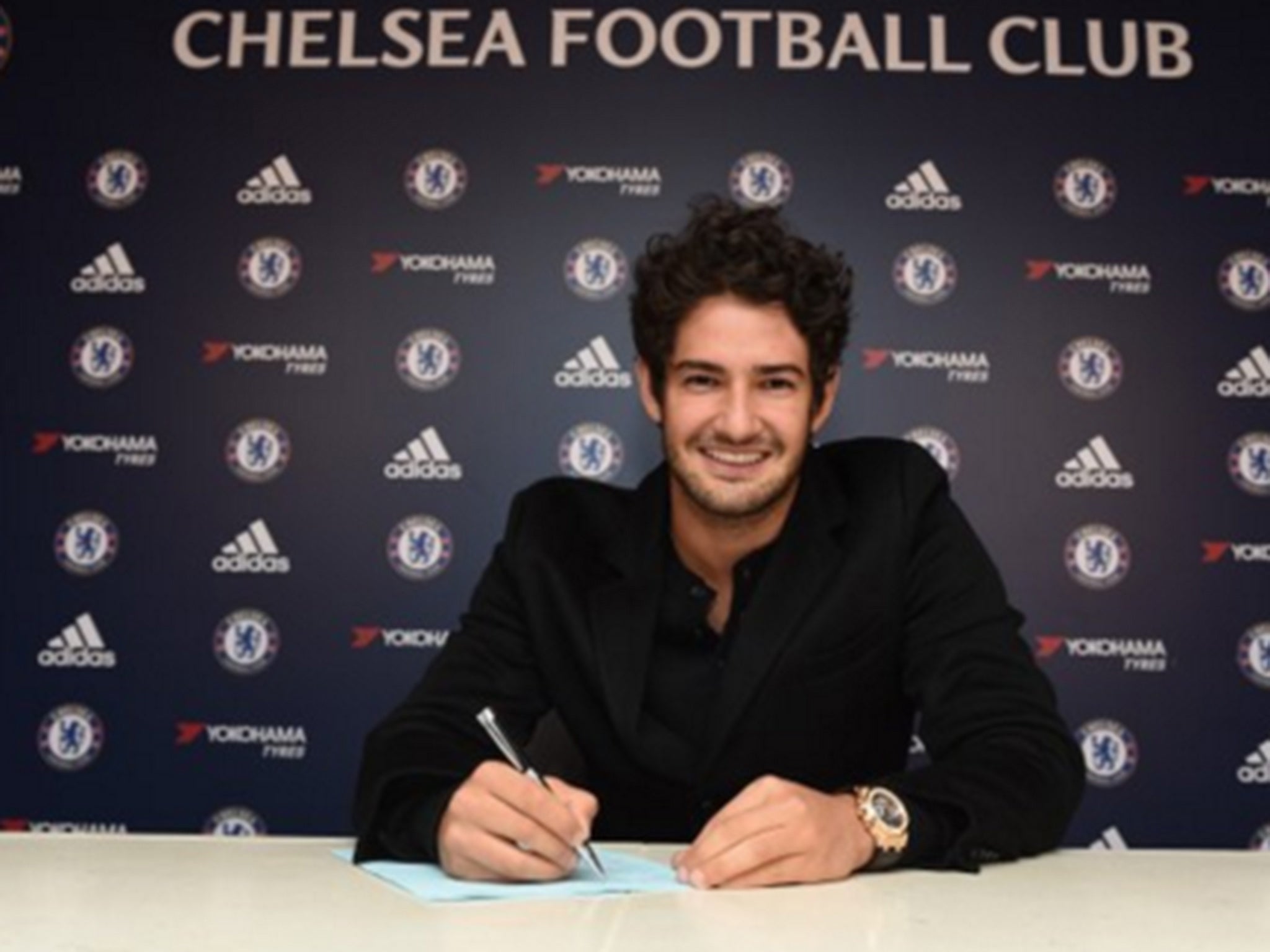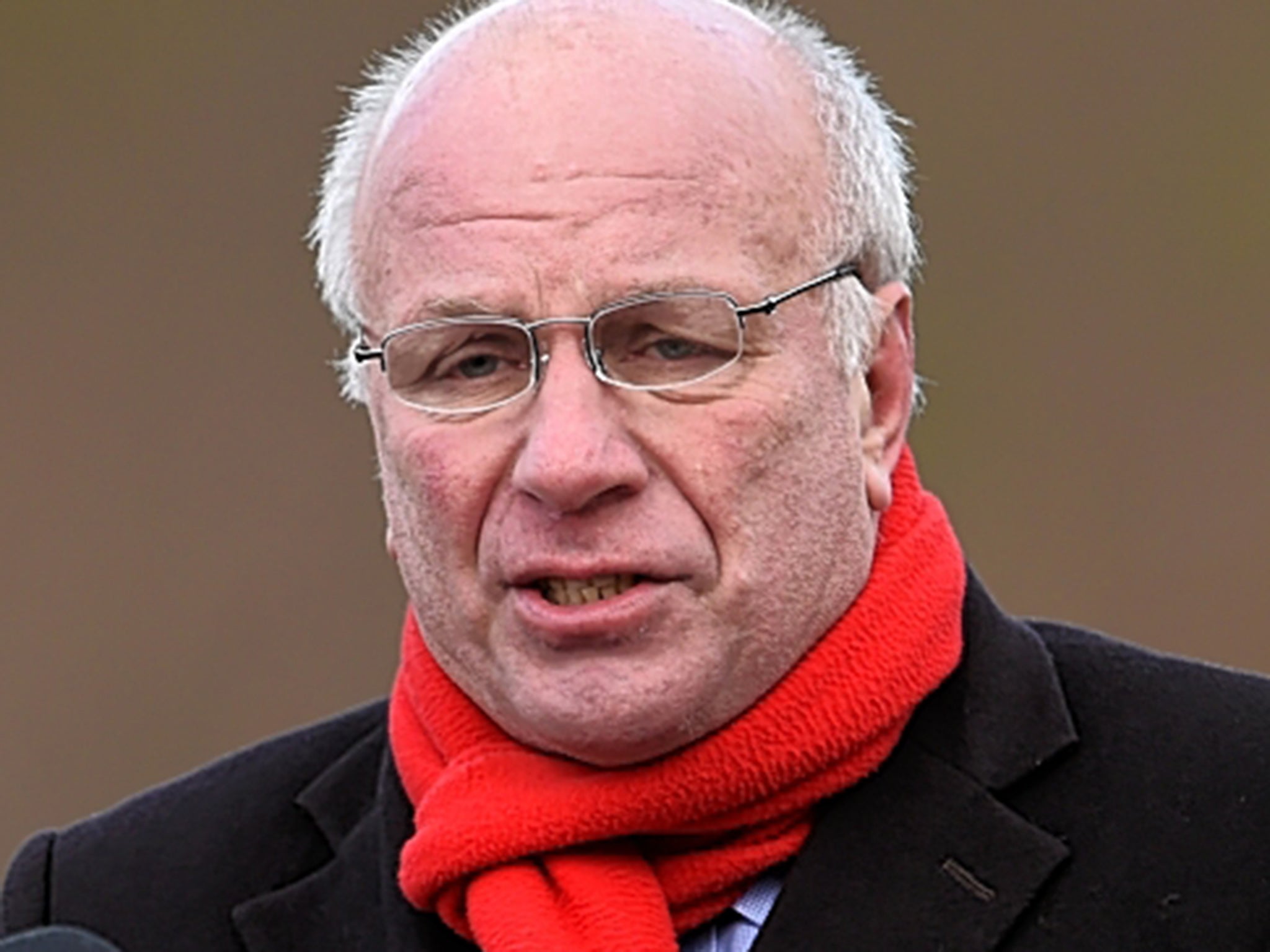Alexandre Pato Chelsea case makes a lame duck of Greg Dyke’s quality controls for overseas players
FOOTBALL MATTERS

Your support helps us to tell the story
From reproductive rights to climate change to Big Tech, The Independent is on the ground when the story is developing. Whether it's investigating the financials of Elon Musk's pro-Trump PAC or producing our latest documentary, 'The A Word', which shines a light on the American women fighting for reproductive rights, we know how important it is to parse out the facts from the messaging.
At such a critical moment in US history, we need reporters on the ground. Your donation allows us to keep sending journalists to speak to both sides of the story.
The Independent is trusted by Americans across the entire political spectrum. And unlike many other quality news outlets, we choose not to lock Americans out of our reporting and analysis with paywalls. We believe quality journalism should be available to everyone, paid for by those who can afford it.
Your support makes all the difference.In hindsight, it now looks like Greg Dyke’s Neville Chamberlain moment, but the Football Association chairman can probably thank Alexandre Pato and Chelsea for that.
Speaking last March after discussions with the Home Office had led to what he described as a “fundamental reform” of the existing regulations governing the issuing of work permits to players from outside the European Union, Dyke insisted that the days of “bog-standard” players arriving in this country were over.
“The new system will make it far easier for us to identify and attract top-quality players that truly are at the elite level, and it will make it far tougher for those who don’t meet the quality standard to get to play in Britain,” Dyke declared. “It is a significant step forward. We don’t want to stop the outstanding talent coming, but there are an awful lot of bog-standard players as well.”
In short, the work permit regulations were supposed to have become more stringent, primarily to prevent substandard players being signed, but also to allow home-grown youngsters a greater chance of progression without an overpaid and underperforming Brazilian, Colombian, Nigerian or whoever blocking his path to the first team.
A points system was introduced and the old criterion of a player needing to have played for a country in the top 70 of the Fifa rankings over a two-year period amended to that nation needing to be in the Fifa top 50.
Also, rather than have to play in 75 per cent of their country’s games over the last two years, a sliding scale was devised whereby a player needs only a 30 per cent appearance rate if his nation is in the top 10, 45 per cent between 11 and 20, 60 per cent between 21 and 30 and so on.
Any supporter with even the slightest knowledge of South American football, however, would tell you that Pato comes nowhere near to achieving any of the above criteria but, for a fee of just £5,000 plus VAT, Chelsea were able to plead his case in front of a three-man Exceptions Panel last Friday and his work permit was granted.
Pato’s name may be a translation of “duck” in Portuguese, but it has only been of the “lame” variety in recent years.
At 26, the one-time golden boy of Brazilian football had drifted so far off the radar prior to Chelsea’s bemusing move last week that he had not even pulled on the yellow shirt of his country since 2013.
Pato was kicking his heels in Sao Paulo during the summer of 2014 when arguably the most limited Brazilian squad in World Cup history limped its way to the semi-finals before being humiliated in a 7-1 defeat against Germany in Belo Horizonte.
And despite returning to Brazil in January 2013, signing for Corinthians for £11.5m after a succession of injuries had ended his once-promising career with Milan, Pato lasted just a year with Brazil’s most powerful club before being shipped out on loan to city rivals Sao Paulo.
When announcing his signing on a six-month loan last Friday, Chelsea’s website somewhat skirted around the issue of Pato’s downwards career trajectory, talking up his “vision, movement and clinical finishing” with Milan before referring to his “successful loan spell with Sao Paulo” before his move to Stamford Bridge.
No mention of his absence from the Brazil squad since October 2013, patchy fitness record or the recent images of the forward playing for Sao Paulo in which he appears to have accelerated through the weight divisions since his time in Milan.
Guus Hiddink, whose interim role as Chelsea manager perhaps denies him the authority to veto any move he may have his doubts about, did not appear to be making too many plans for Pato.
“We will test him physically in training and will see when he is available,” Hiddink said last week. “It will take him a while, but it’s not a gamble. Coming on loan makes it possible to have a good view of him, whether he’s able to adapt to the high demands of the club and the league. We’ll give him all the support, but it’s up to him.”
So Pato arrives at Chelsea and he is not even fit enough to go into the squad for the Premier League trip to Watford on Wednesday.
Meanwhile, Patrick Bamford, the 22-year-old from Grantham who scored 19 goals on loan at Middlesbrough last season, finds himself loaned out to Norwich City until the end of the season, having only been back at Chelsea for a month having cut short another loan spell at Crystal Palace.
Bamford is by no means the finished article, and his unsatisfactory six months at Palace suggest he may never be good enough for Chelsea, but is he really so unimpressive that a half-fit Pato is regarded as being a better option?
Chelsea have already been burned this season by the loan signing of Radamel Falcao, whose dismal campaign at Manchester United last season should have been a warning that a big reputation counts for nothing if a player has suffered one injury too many.

But here we go again with Pato, who was offered to United in August only for Louis van Gaal and executive vice-chairman Ed Woodward to say “thanks, but no thanks”.
Yet Chelsea really should not have been able to beef up their squad by signing Pato. If Dyke’s assertion last March was to hold true, then Pato would have been left at the departure gate in Sao Paulo as the embodiment of the “bog-standard” player he and the English game are so keen to keep out.
But the new regulations may actually be just as flimsy as the old ones, with Pato able to secure a work permit because of the new points system that has been adopted to sort the wheat from the chaff.
Allied to the criteria previously mentioned, a player’s application also rests on issues such as the status of the selling / loaning club and how well he will be paid by his new club. He gets three qualifying points if he is in the top 25 per cent of the earners at his new club and two points if only in the top 50 per cent. Four points is the magic target and, having left a leading club in Brazil, who played in the Copa Libertadores last year, to sign for a leading club who pay big wages in England, Pato gets to walk through the door.
With Bamford allowed to leave just as Pato arrives, however, those new regulations Dyke was so proud of are not exactly working wonders for the development of young English talent.
Vidic a reminder of Fergie’s poor retirement planning
Nemanja Vidic announced his retirement last week, 18 months after leaving Manchester United, with the 34-year-old defender having grown tired of life on the fringes at Internazionale.
The end of the road for Vidic follows Rio Ferdinand’s retirement last summer and that of Ryan Giggs 12 months earlier.
Nothing offers true perspective like the passage of time and the fact that all three started David Moyes’ first Premier League game in charge of Manchester United, against Swansea City, in August 2013 says everything about the ticking time bomb the Scot inherited from Sir Alex Ferguson, with three Old Trafford icons already well on to their last lap.
Moyes made his own mistakes at United, but the lack of long-term planning by Ferguson hurt his successor and the pain is still being felt by Louis van Gaal.
Asprilla offers cautionary tale of deadline day dangers
It is 20 years ago this week that Faustino Asprilla arrived at Newcastle United, apparently to add the final touch of class to confirm the inevitability of the club’s first league title since 1927.
Nine points clear and coasting to the title, Newcastle instead capitulated, with Asprilla disrupting a winning team and injecting uncertainty. So for all those managers waking up on Tuesday with a risky new signing after transfer deadline day, beware the Asprilla factor.
Join our commenting forum
Join thought-provoking conversations, follow other Independent readers and see their replies
Comments